Dubai Leaks PDF reveals extensive property ownership details in Dubai, exposing global elites, politicians, and criminals. It highlights money laundering and illegal activities, sparking global scrutiny.
1.1 Overview of the Dubai Leaks Project
The Dubai Leaks Project, also known as Dubai Unlocked, is a collaborative investigative effort revealing property ownership details in Dubai. Based on leaked data from 2020 to 2022, it exposes ownership of over 800,000 properties, with 191,000 owned by foreigners. The project, led by organizations like the Center for Advanced Defense Studies (C4ADS), sheds light on how global elites, politicians, and criminals have invested in Dubai’s real estate, highlighting potential money laundering and illegal activities. This data has sparked significant global attention and scrutiny.
1.2 Significance of the Leaked Data
The leaked data from the Dubai Leaks PDF has significant implications, exposing widespread illegal financial activities and property investments by global elites, criminals, and sanctioned individuals. It reveals how Dubai’s real estate market has become a haven for money laundering, with foreigners, including Russian oligarchs and Pakistani politicians, owning thousands of properties. The data also highlights the role of Dubai in sheltering fugitives and sanctioned politicians, undermining global anti-money laundering efforts. This leak has sparked international scrutiny, prompting calls for greater transparency and accountability in Dubai’s real estate sector.
1.3 Key Findings from the Dubai Leaks PDF
The Dubai Leaks PDF exposed widespread property ownership by global elites, including Russian oligarchs, Pakistani politicians, and cryptocurrency figures like Ruja Ignatova. It revealed that thousands of properties were linked to sanctioned individuals, criminals, and fugitives, highlighting Dubai’s role in money laundering. The data also showed significant investments by Indian and Pakistani nationals, with Indians topping the list of foreign property owners. These findings underscore the emirate’s appeal as a haven for illicit financial activities, raising concerns about transparency and accountability in its real estate sector.

The Dubai Unlocked Investigation
Dubai Unlocked, a global collaborative effort, analyzed property data from 2020 to 2022, exposing how Dubai became a hotspot for global elites and criminals to invest and hide assets.
2.1 Background of the Dubai Unlocked Project
The Dubai Unlocked project emerged as a collaborative investigative effort, focusing on leaked property data from Dubai. It began by analyzing records from 2020 to 2022, aiming to uncover ownership details. The initiative involved journalists and researchers from various organizations, including the Center for Advanced Defense Studies (C4ADS). The leaked data revealed extensive property holdings, shedding light on how Dubai’s real estate market attracted global elites, criminals, and politically exposed individuals. This project laid the groundwork for understanding the emirate’s role in international financial flows and illicit activities.
2.2 Scope of the Leaked Property Data
The leaked property data encompasses millions of records, detailing ownership of over 800,000 properties in Dubai. The dataset spans from 2020 to 2022, revealing ownership details of 274,000 individuals and entities. Notably, 191,000 of these owners were foreigners, with Indians and Pakistanis among the top nationalities. The leak exposed properties linked to Russian and Belarusian oligarchs, sanctioned individuals, and even high-profile criminals like Ruja Ignatova. This vast dataset underscores Dubai’s role as a hub for global wealth, highlighting concerns about transparency and illicit financial activities in its real estate sector.
2.3 Major Revelations About Property Ownership
The Dubai Leaks PDF exposed widespread property ownership by global elites, politicians, and criminals. It revealed that foreigners, including Indians and Pakistanis, owned significant portions of Dubai’s real estate. The data also linked properties to Russian oligarchs, sanctioned individuals, and fugitives like Ruja Ignatova. These revelations highlighted Dubai’s role as a hub for wealth accumulation, raising concerns about money laundering and illicit financial activities. The leak underscored the emirate’s appeal to individuals seeking to hide or invest assets, shedding light on the opaque nature of its real estate market.
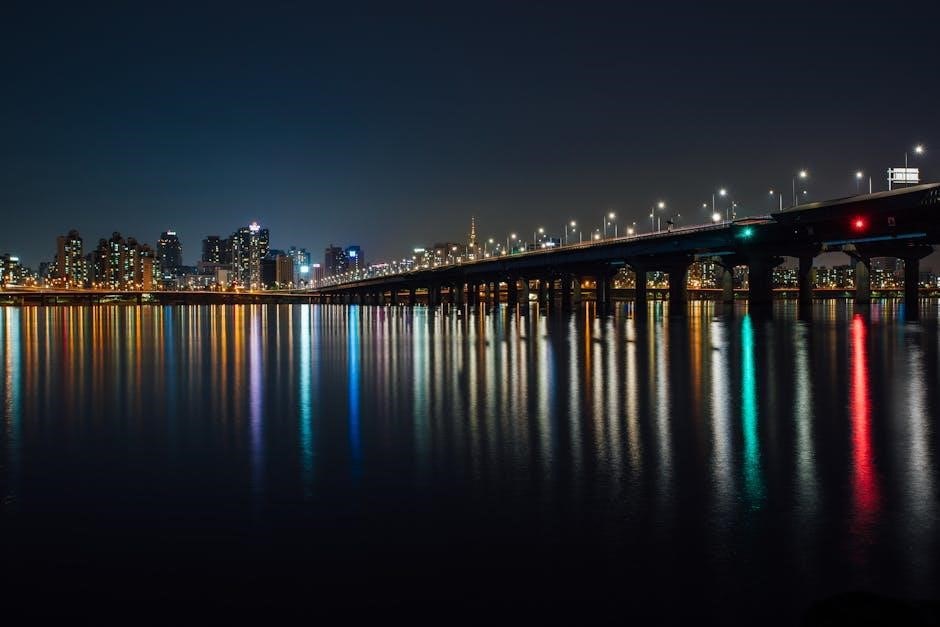
Global Elite and Property Ownership in Dubai
Dubai Leaks PDF uncovers elite property owners, including politicians, oligarchs, and crypto figures, revealing how they exploit Dubai’s real estate for wealth concealment and investment.
3.1 Prominent Individuals Exposed in the Leaks
The Dubai Leaks PDF has exposed high-profile individuals, including politicians, celebrities, and business magnates, who own luxury properties in Dubai. These leaks revealed how global elites, such as cryptocurrency figures like Ruja Ignatova, and Russian oligarchs, have invested heavily in Dubai’s real estate. The data also shed light on sanctioned individuals and criminals who have used Dubai’s property market to launder money or hide assets. This has raised concerns about the emirate’s role in facilitating financial secrecy and illegal activities.
3.2 Cryptocurrency Figures and Their Dubai Assets
The Dubai Leaks PDF has uncovered significant investments by cryptocurrency figures in Dubai’s real estate. Notably, Ruja Ignatova, known as the “Cryptoqueen” for her role in the OneCoin scam, was found to have links to properties in Dubai. Other cryptocurrency entrepreneurs and fugitives have also been identified, leveraging Dubai’s luxury properties to hide or invest their illicit gains. These revelations highlight the emirate’s appeal to those seeking to obscure the origins of their wealth, raising questions about Dubai’s regulatory frameworks and their effectiveness in preventing financial crimes.
3.3 Russian Oligarchs and Sanctioned Individuals
The Dubai Leaks PDF has exposed numerous Russian oligarchs and sanctioned individuals with significant property holdings in Dubai. Following Russia’s invasion of Ukraine, many oligarchs shifted assets to Dubai to evade sanctions. The leaked data reveals at least 76 properties linked to Russian and Belarusian individuals under sanctions. These findings underscore Dubai’s role as a haven for wealth tied to illicit activities, raising concerns about the emirate’s compliance with international sanctions and its effectiveness in combating financial crimes linked to high-profile individuals.
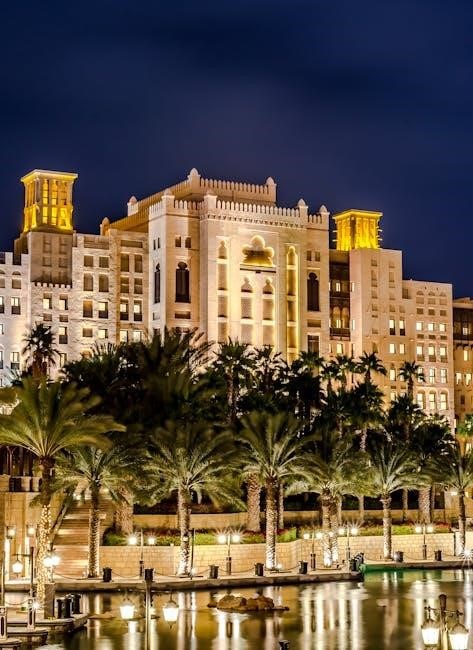
Political and Military Figures in the Leaks
The Dubai Leaks PDF exposed prominent political and military figures, including Pakistani politicians and Indian nationals, owning high-end properties in Dubai, raising questions about asset origins and transparency.
4.1 Pakistani Politicians and Military Personnel
The Dubai Leaks PDF revealed significant property holdings by Pakistani politicians and military personnel, with over 23,000 properties linked to Pakistani nationals. This includes prominent political figures and high-ranking military officials. The leaked data, part of the Dubai Unlocked project, exposed details of individuals from various sectors, raising concerns about the sources of their wealth and potential conflicts of interest. These revelations have sparked investigations and public debate about transparency and accountability among Pakistan’s elite.
4.2 Indian Nationals and Their Dubai Properties
Indians topped the list of foreign nationals owning properties in Dubai, with 35,000 properties and 29,700 owners among foreigners. The leaked data revealed significant investments by Indian nationals, including business professionals, investors, and some government officials. These holdings raised questions about the sources of wealth and financial transactions. The revelations underscored the role of Dubai’s real estate in attracting global capital, including from India, and highlighted concerns about transparency and accountability in international property ownership.
4.3 Other International Political Figures
The Dubai Leaks exposed property ownership by various international political figures, including sanctioned individuals and those linked to illicit activities. A Tory peer apologized for not disclosing Dubai properties, while others, like relatives of West African dictators and sanctioned Hezbollah financiers, were also implicated. The leaks revealed how Dubai’s real estate attracted a diverse array of global elites, raising concerns about money laundering and the use of luxury properties to conceal illicit wealth. These findings underscored the need for greater transparency in international property transactions.

Criminal Activities and Dubai Real Estate
Dubai Leaks revealed widespread criminal activities tied to real estate, including money laundering, investments by fugitives, and properties linked to sanctioned individuals and cryptocurrency fraudsters.
5.1 Money Laundering and Property Investments
The Dubai Leaks PDF exposed extensive money laundering schemes tied to real estate investments. Criminals and sanctioned individuals used Dubai’s property market to launder billions, leveraging shell companies and proxies to obscure ownership. The leak revealed how illicit funds were channeled into luxury properties, highlighting vulnerabilities in Dubai’s financial regulatory framework. This widespread abuse underscores the emirate’s role as a hub for illegal financial activities, raising concerns about global anti-money laundering efforts and the transparency of its real estate sector.
5.2 Criminals and Fugitives in Dubai
The Dubai Leaks PDF revealed how criminals and fugitives exploited Dubai’s real estate market to hide their illicit activities. Notable figures like Ruja Ignatova, known as the “Cryptoqueen,” and other high-profile individuals linked to fraud, money laundering, and organized crime were exposed. The leaks highlighted how these individuals purchased luxury properties to conceal their identities and assets. Dubai’s lax regulatory environment and luxury real estate market made it an attractive haven for such individuals, raising concerns about the emirate’s role in harboring global criminal activity.
5.3 Sanctioned Politicians and Their Assets
The Dubai Leaks PDF exposed sanctioned politicians and their hidden assets in Dubai’s real estate market. Russian and Belarusian oligarchs, along with other international figures, were found to own properties worth millions. These individuals, under global sanctions, exploited Dubai’s lax regulations to conceal their wealth. The leaks revealed how sanctioned politicians funneled money into luxury properties, bypassing international restrictions. This uncovered a significant loophole in global anti-money laundering efforts, raising concerns about Dubai’s role in harboring illicit financial activities by high-profile, sanctioned individuals.
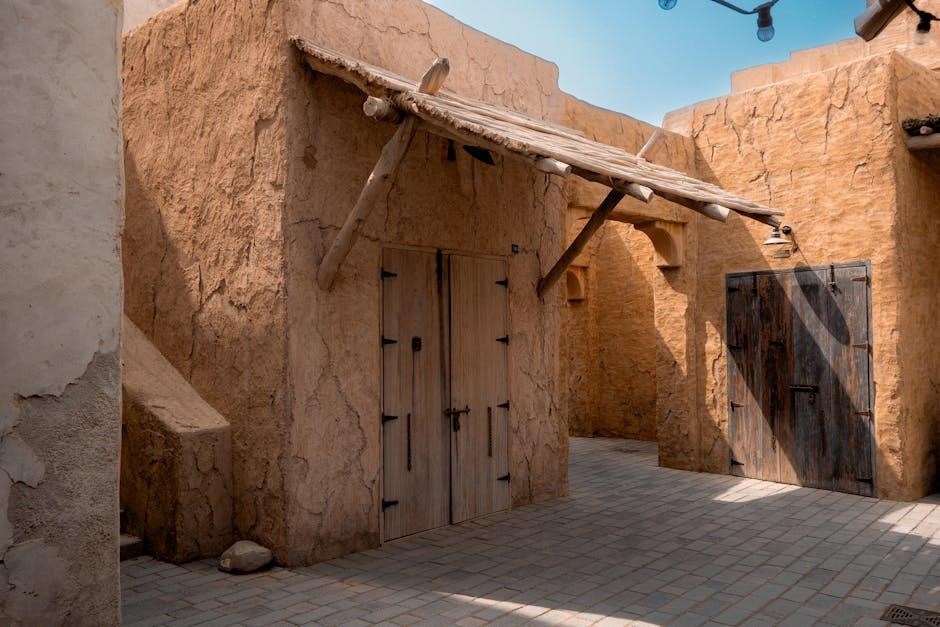
Investigative Journalism and the Leaks
Collaborative journalism uncovered Dubai’s real estate secrets, revealing global elites and criminals. Investigative efforts exposed systemic money laundering and illegal asset hiding, sparking international debates.
6.1 Role of Collaborative Journalism in Exposing the Leaks
Collaborative journalism played a pivotal role in exposing the Dubai Leaks, uniting global news outlets and researchers. By sharing resources and expertise, journalists uncovered hidden property ownership, revealing ties between politicians, criminals, and luxury real estate. This collective effort ensured comprehensive coverage and credibility, amplifying the impact of the revelations. The collaboration highlighted the power of teamwork in investigative reporting, making it difficult for authorities to dismiss the findings. It set a benchmark for future investigative projects, demonstrating how shared efforts can lead to significant public interest disclosures.
6.2 Organizations Involved in the Investigation
The Dubai Leaks investigation involved several organizations, including the Organized Crime and Corruption Reporting Project (OCCRP), the Center for Advanced Defense Studies (C4ADS), and ZDF. These groups collaborated to analyze leaked property data, uncovering ties between luxury real estate and global elites, criminals, and sanctioned individuals. Their collective efforts provided critical insights into money laundering and illicit activities. The involvement of these organizations ensured credibility and depth in the investigation, making it a landmark case in investigative journalism.
6.3 Challenges Faced by Journalists
Journalists investigating the Dubai Leaks faced numerous challenges, including legal threats, data complexity, and source protection. The large volume of data required extensive resources and expertise to analyze. Additionally, the sensitive nature of the information put journalists at risk, with some facing intimidation. Despite these obstacles, the collaborative effort ensured the findings reached the public, highlighting the importance of investigative journalism in uncovering global financial irregularities and promoting transparency.
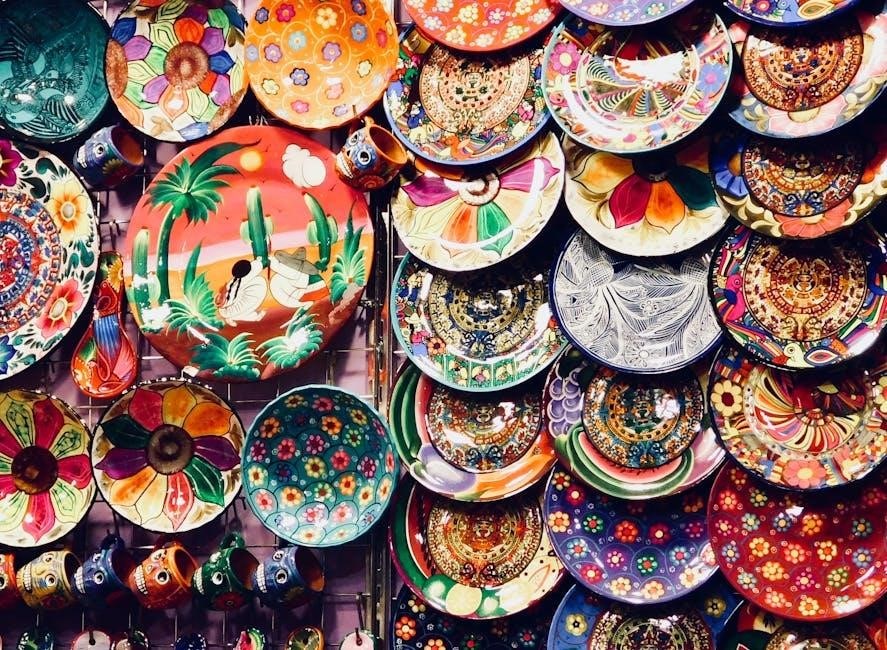
Impact of the Dubai Leaks
The Dubai Leaks exposed widespread financial activities, prompting government reactions, public outcry, and media scrutiny, while highlighting vulnerabilities in global anti-money laundering frameworks.
7.1 Reactions from Governments and Authorities
Governments and authorities worldwide have responded to the Dubai Leaks, with officials apologizing for undisclosed properties and promising investigations. The UAE faces increased scrutiny over its anti-money laundering efforts, while international bodies criticize Dubai’s role as a haven for illicit activities. The leaks have prompted calls for greater transparency and regulatory reforms, highlighting the need for stronger measures to combat financial crimes and illegal asset hiding in the emirate.
7.2 Public Response and Media Coverage
The Dubai Leaks sparked widespread public outrage and intense media scrutiny, with global news outlets covering the revelations extensively. Social media platforms buzzed with discussions about corruption and illicit wealth, while activists called for accountability. Media reports highlighted how Dubai’s luxury real estate market became a hotspot for criminals and sanctioned individuals, raising questions about transparency and governance. The leaks have fueled public demand for reforms and greater oversight of international financial systems to prevent such abuses in the future.
7.3 Implications for Global Anti-Money Laundering Efforts
The Dubai Leaks have exposed significant vulnerabilities in global anti-money laundering systems, particularly in luxury real estate. The revelations highlight how Dubai’s property market has been exploited by criminals, politicians, and sanctioned individuals to launder illicit funds. This has raised alarms about the effectiveness of current AML frameworks and the need for stronger international cooperation. The leaks underscore the importance of enhancing transparency in property transactions and enforcing stricter due diligence to prevent the misuse of real estate for financial crimes.
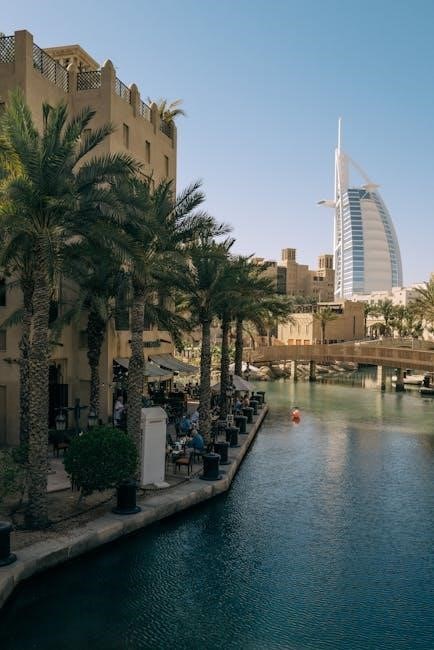
Specific Cases and Examples
Dubai Leaks PDF highlights specific cases, including Ruja Ignatova’s crypto empire, properties linked to Russian and Belarusian oligarchs, and other notable individuals with hidden Dubai assets.
8.1 The Case of Ruja Ignatova and OneCoin
Ruja Ignatova, known as the “Cryptoqueen,” was exposed in the Dubai Leaks for her involvement in the OneCoin Ponzi scheme. The leaked data revealed her ties to Dubai properties, showcasing how the city became a haven for her operations despite global scrutiny. Ignatova and her associates utilized Dubai’s real estate market to launder funds, highlighting the emirate’s role in sheltering financial criminals. The leaked documents provided critical insights into her network and assets, aiding international investigations into her activities.
8.2 Properties Linked to Russian and Belarusian Oligarchs
The Dubai Leaks exposed properties linked to Russian and Belarusian oligarchs, revealing their illicit financial activities. Post-Ukraine invasion, at least 76 properties in Dubai were traced to these individuals. The leaked data, dating back to 2020, highlighted how these oligarchs utilized Dubai’s real estate market to launder money and evade sanctions. The findings underscored concerns about Dubai’s role in harboring sanctioned individuals and facilitating global financial crimes, raising questions about the emirate’s regulatory oversight and its appeal to illicit actors.
8.3 Other Notable Individuals and Their Dubai Assets
Beyond oligarchs, the Dubai Leaks revealed properties owned by other high-profile individuals, including cryptocurrency figures like Ruja Ignatova, known as the Cryptoqueen, and associates involved in the OneCoin scheme. Additionally, sanctioned politicians and fugitives were found to have invested in Dubai’s luxury real estate. The leaks also exposed properties linked to Australian cocaine traffickers and relatives of West African dictators, showcasing Dubai’s allure for individuals seeking to conceal illicit wealth. These revelations highlight the emirate’s role in attracting a diverse array of global elites with questionable financial activities.
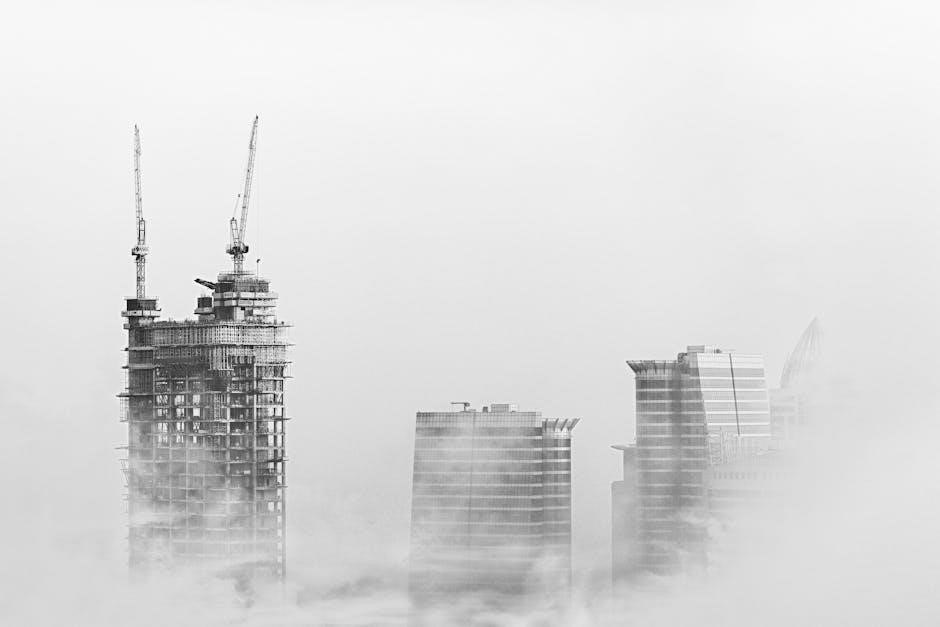
Timeline of the Dubai Leaks
The Dubai Leaks began with data collection in 2020, followed by its release in 2022, and gained prominence in 2024, revealing key milestones in the investigation.
9.1 Key Dates in the Leak’s History
The Dubai Leaks began with data collection in 2020, focusing on property records. The leak surfaced in 2022, revealing ownership details of global elites, politicians, and criminals. By 2024, it gained international attention, exposing sanctioned individuals and prompting governmental reactions. The leak highlighted Dubai’s role in global financial activities, sparking debates on transparency and accountability in real estate dealings.
9.2 How the Data Was Obtained and Released
The Dubai Leaks data was obtained by the Center for Advanced Defense Studies (C4ADS) from internal Dubai property records between 2020 and 2022. The leak was facilitated through collaborative journalism efforts, with the data shared anonymously. It was later verified and published by the Organized Crime and Corruption Reporting Project (OCCRP) as part of the Dubai Unlocked investigation. The release exposed millions of property records, revealing ownership details of global elites, politicians, and criminals, sparking widespread media coverage and public debate.
9.3 Evolution of the Investigation
The Dubai Leaks investigation began with the initial data release in 2022, revealing property ownership details. It expanded as journalists cross-referenced the data with other sources, uncovering links to money laundering, sanctioned individuals, and cryptocurrency figures. Collaborative efforts involving OCCRP and C4ADS deepened the probe, leading to further revelations about Russian oligarchs and Pakistani politicians. The investigation continues to evolve, with new findings periodically emerging, prompting ongoing scrutiny and calls for transparency in Dubai’s real estate sector.
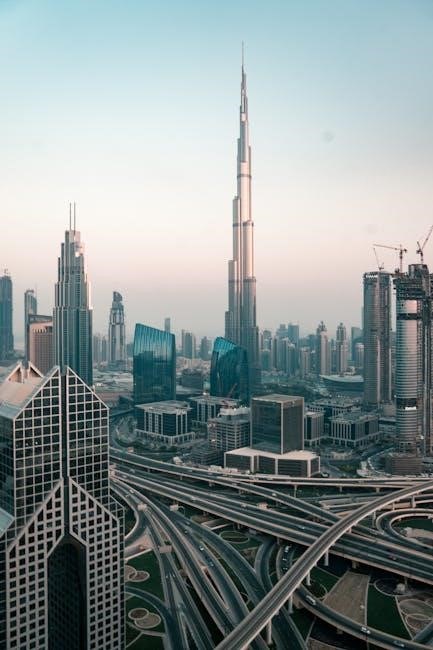
Legal and Ethical Considerations
Dubai Leaks PDF raises legal concerns over property ownership transparency and ethical dilemmas in exposing sensitive data, challenging privacy rights versus public interest in accountability.
10.1 Legal Implications for Property Owners
The Dubai Leaks PDF has significant legal implications for property owners, exposing potential breaches of privacy and data protection laws. Many individuals face legal scrutiny as their ownership details, including those tied to illegal activities, have been made public. Authorities may investigate cases involving money laundering or undisclosed assets, leading to possible seizures or penalties. Legal challenges for owners now include defending their property acquisitions and addressing allegations of financial misconduct. This situation underscores the need for transparency and compliance with international regulations.
10.2 Ethical Dilemmas in Publishing Leaked Data
Publishing the Dubai Leaks PDF raises ethical dilemmas, balancing public interest with privacy rights. While exposing illicit activities is crucial, it risks harming individuals not involved in wrongdoing. Journalists face moral challenges in deciding which data to release, potentially damaging reputations or violating personal privacy. The ethical responsibility to hold power to account must be weighed against the consequences for ordinary citizens whose information may be inadvertently exposed. This debate highlights the complexities of transparency and accountability in investigative journalism.
10.3 Future Prospects for Accountability
The Dubai Leaks PDF has set a precedent for future accountability, prompting calls for increased transparency in global financial systems. Authorities may implement stricter regulations to prevent illicit activities, potentially leading to legal reforms. This could result in heightened scrutiny of offshore investments and more rigorous enforcement of anti-money laundering laws. The exposure of high-profile individuals might encourage whistleblower protections and collaborative international efforts to combat financial crimes, ensuring greater accountability and integrity in global real estate markets.
The Dubai Leaks PDF exposed widespread illegal financial activities, prompting global calls for transparency and accountability, underscoring implications for future anti-money laundering efforts and regulatory reforms.
11.1 Summary of the Dubai Leaks PDF Revelations
The Dubai Leaks PDF exposed widespread property ownership by global elites, politicians, and criminals, revealing money laundering and illegal activities. It detailed properties linked to sanctioned individuals, cryptocurrency figures, and Russian oligarchs, among others. The leaks highlighted Dubai’s role as a haven for illicit financial flows, prompting international scrutiny and calls for transparency. The revelations underscored the need for stronger anti-money laundering regulations and greater accountability, affecting global efforts to combat financial crime and corruption.
11.2 Potential Future Investigations
Future investigations could delve deeper into Dubai’s real estate sector, focusing on undisclosed ownership structures and shell companies. Researchers may explore links between property transactions and emerging cryptocurrencies. Additionally, probes into other global tax havens and financial hubs could uncover similar patterns of illicit wealth. Collaborative journalism efforts might expand to investigate political connections and international crime networks linked to Dubai’s property market, ensuring greater transparency and accountability in the fight against financial corruption.
11.3 Call to Action for Greater Transparency
The Dubai Leaks PDF underscores the urgent need for enhanced transparency in global real estate transactions. Governments and financial institutions must adopt stricter regulations to combat money laundering and illicit asset hiding. Public awareness campaigns can pressure authorities to enforce accountability. Advocacy groups and journalists play a crucial role in demanding policy reforms and ensuring that such leaks lead to tangible change, fostering a more equitable and transparent financial system worldwide.

